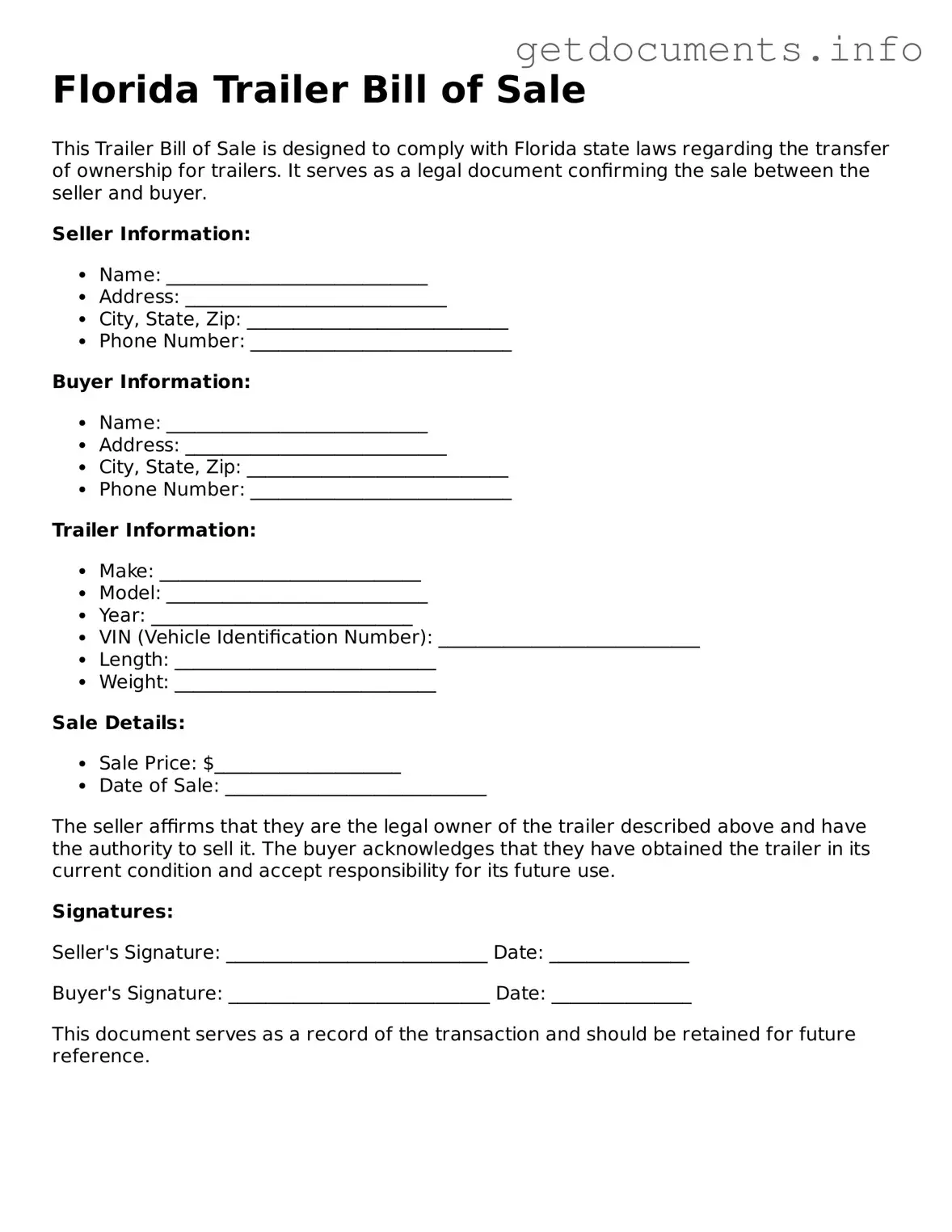Free Trailer Bill of Sale Template for Florida
The Florida Trailer Bill of Sale form is a legal document that records the sale of a trailer from one party to another. This form serves as proof of ownership and includes essential details about the transaction, such as the buyer's and seller's information, trailer description, and sale price. Completing this form is crucial for ensuring a smooth transfer of ownership, so be sure to fill it out by clicking the button below.
Access Trailer Bill of Sale Editor

Free Trailer Bill of Sale Template for Florida
Access Trailer Bill of Sale Editor
Got places to be? Complete the form fast
Fill out Trailer Bill of Sale online and avoid printing or scanning.
Access Trailer Bill of Sale Editor
or
⇩ PDF File
